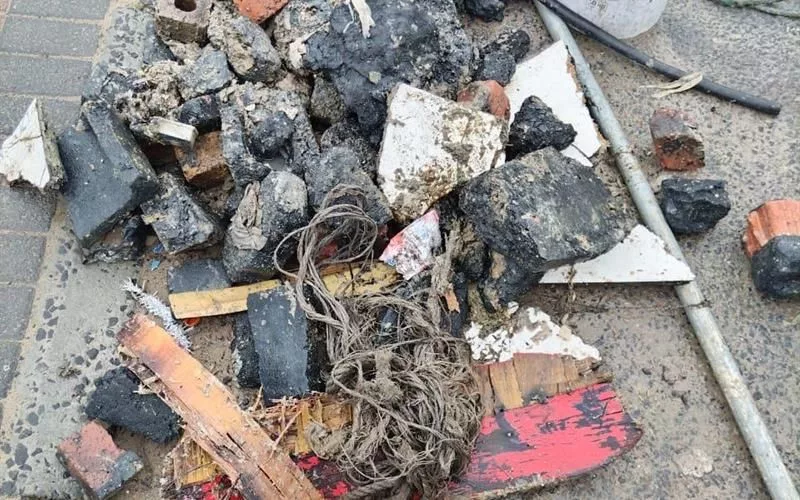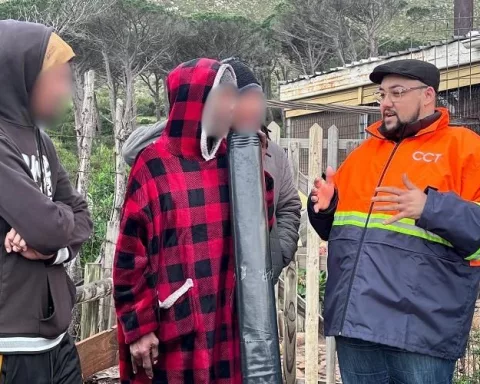Cape Town is facing a critical challenge of sewer blockages, with an alarming 2,799 blockages reported in a week, causing a massive problem for the city. The city’s maintenance teams work relentlessly to deblock sewers, but household waste items such as candy and chip wrappers, cooking oils, and fats often contribute to the problem. The city has implemented preventative measures, but citizens also have a crucial role to play in mitigating the problem by utilizing proper waste disposal and refraining from pouring cooking oils or fats down the sink.
What is Cape Town’s fight against sewer blockages?
Cape Town is facing a critical challenge of sewer blockages, with an alarming 2,799 blockages reported in a week. The city’s maintenance teams work relentlessly to deblock sewers, but household waste items such as candy and chip wrappers, cooking oils, and fats often contribute to the problem. The city has implemented preventative measures, but citizens also have a crucial role to play in mitigating the problem by refraining from pouring cooking oils or fats down the sink, promptly reporting stolen or broken manhole covers, and utilizing proper waste disposal.
The Worsening Blockage Situation
The picturesque coastal city of Cape Town, renowned for its stunning landscapes, is grappling with a less pleasant, albeit critical, challenge: sewer blockages. An unexpected upsurge in such blockages, especially noticeable in the winter season, has triggered an urgent appeal for citizens to help maintain the city’s sewer system’s health and functionality.
The enormity of this problem was highlighted in a particularly hectic week in June when the City’s Water and Sanitation Directorate reported an alarming 2,799 sewer blockages. This translates to nearly 400 blockages each day, a clear indicator of the massive problem the city is facing. Encouragingly, more than half of these blockages have been handled, and initiatives are in progress to tackle the remaining blockages as promptly as possible.
The City’s Battle Against Sewer Blockages
The city’s dedicated maintenance teams work relentlessly, pouring countless hours into the unenviable job of deblocking sewers. This job often demands hours, even days, to deblock a single pipeline. Once a pipeline is unblocked, the teams move to the next, which results in thousands of complaints being dealt with and resolved in a mere matter of days.
Despite the significant progress made by these teams, it is apparent that the issue of sewer blockages is not one they should shoulder alone. As Councillor Zahid Badroodien, Mayoral Committee Member for Water and Sanitation, articulates, “Collaboration is key in protecting our sewer system.” Councillor Badroodien acknowledges the increase in blockages during winter due to the combination of higher volumes of rainwater and foreign objects in the system.
The Main Culprits for the Blockages
Indeed, the primary culprits for these blockages are often household waste items such as candy and chip wrappers, cooking oils, and fats. These substances, along with illegal disposal of stones, sand, and construction rubble through manholes, contribute to reduced wastewater conveyance, expensive infrastructure damage, and a heightened risk of blockages causing sewage overflows.
Proactively, the city has implemented a variety of preventative measures to alleviate sewer blockages. These efforts encompass cleaning primary sewer pipelines with specialized machinery, supervising telemetry alarm systems at pump stations, and replacing broken, stolen, or damaged manhole covers. The city also undertakes public awareness campaigns to further educate the population about the issue.
The Citizens’ Role in Mitigating the Problem
However, the city recognizes that its residents also have a crucial part to play in this endeavor. Citizens can make a significant difference by only flushing human waste and toilet paper, refraining from pouring cooking oils or fats down the sink, promptly reporting stolen or broken manhole covers, reporting illegal dumping and blocked drains, and utilizing the city’s solid waste services for proper waste disposal.
Service disruptions or faults can be reported through a myriad of channels, including the call center, SMS, email, WhatsApp, online services, and walk-in centers. The city encourages its residents to secure a reference number for any service request to expedite follow-up.
The fight against sewer blockages is a collective undertaking, one that requires the involvement of all residents. The sanitation and cleanliness of the city are shared responsibilities, and every citizen’s actions significantly impact the overall situation. Through joint efforts and vigilance, the city of Cape Town can remain a symbol of urban beauty and sustainability.
How many sewer blockages were reported in a week in Cape Town?
An alarming 2,799 sewer blockages were reported in a week in Cape Town, which translates to nearly 400 blockages each day.
What are the main causes of sewer blockages in Cape Town?
Household waste items such as candy and chip wrappers, cooking oils, and fats, along with illegal disposal of stones, sand, and construction rubble through manholes are the primary culprits for sewer blockages in Cape Town.
What preventative measures has the city of Cape Town implemented to alleviate sewer blockages?
The city of Cape Town has implemented several measures, including cleaning primary sewer pipelines with specialized machinery, supervising telemetry alarm systems at pump stations, replacing broken, stolen, or damaged manhole covers, and conducting public awareness campaigns.
What is the citizens’ role in mitigating the problem of sewer blockages in Cape Town?
Citizens can make a significant difference by only flushing human waste and toilet paper, refraining from pouring cooking oils or fats down the sink, promptly reporting stolen or broken manhole covers, reporting illegal dumping and blocked drains, and utilizing the city’s solid waste services for proper waste disposal.
How can citizens report service disruptions or faults related to sewer blockages in Cape Town?
Service disruptions or faults related to sewer blockages can be reported through various channels, including the call center, SMS, email, WhatsApp, online services, and walk-in centers. The city encourages its residents to secure a reference number for any service request to expedite follow-up.
Why is collaboration key in protecting Cape Town’s sewer system?
Councillor Zahid Badroodien, Mayoral Committee Member for Water and Sanitation, emphasizes that collaboration is key in protecting the sewer system. The city’s maintenance teams work relentlessly, but the issue of sewer blockages is not one they should shoulder alone. Through joint efforts and vigilance, the city of Cape Town can remain a symbol of urban beauty and sustainability.











